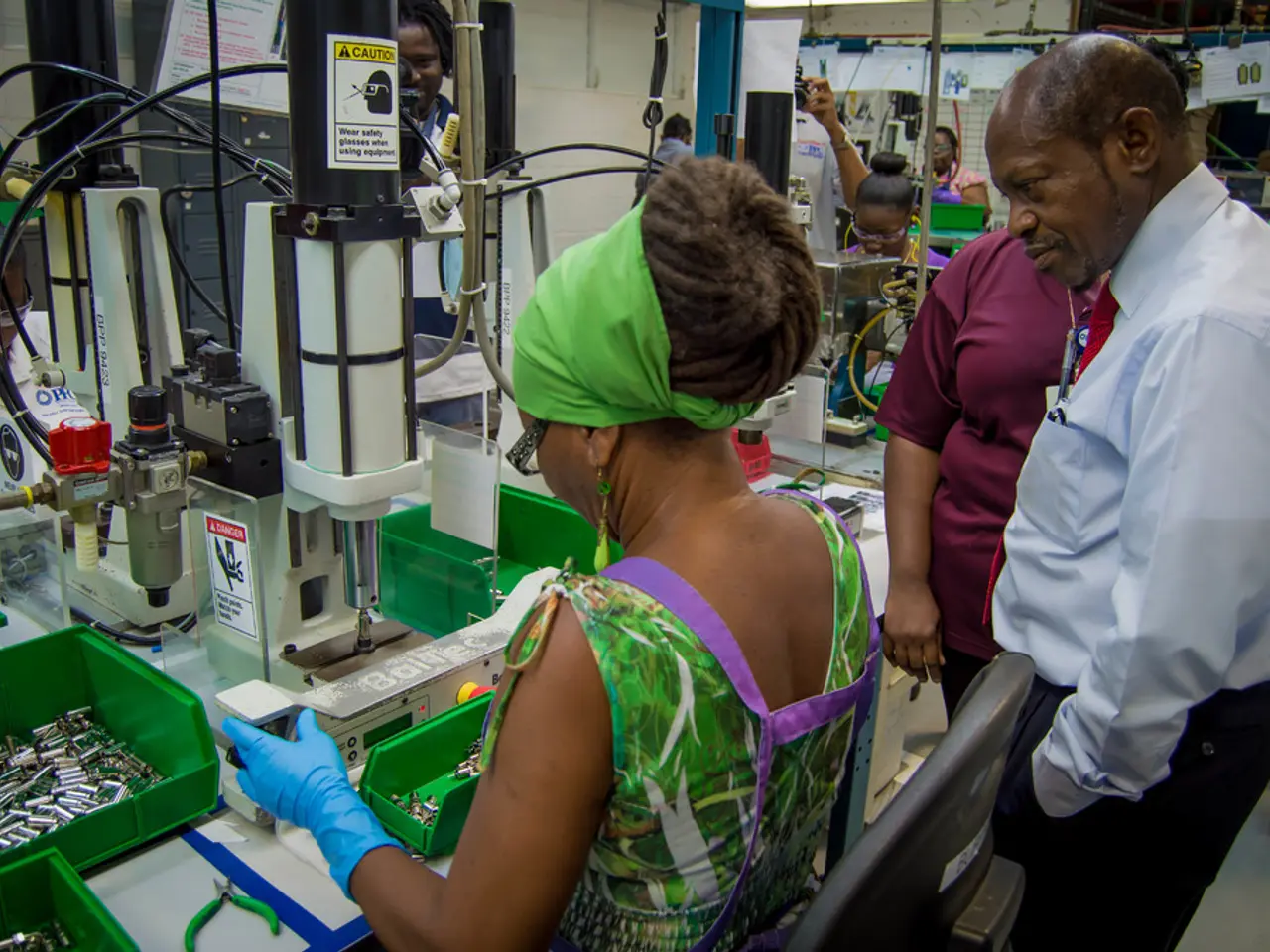Enhanced regulations for foreign caregiver employment in Taiwan
New Policy in Taiwan Expands Access to Live-in Foreign Caregivers
As of August 1, 2025, a new policy in Taiwan allows families of individuals aged 80 and older—or those aged 70 to 79 diagnosed with stage II cancer or above—to hire live-in foreign caregivers without requiring health evaluations such as the Barthel Index assessment [1][2][3]. This easing of rules is intended to expand access to caregivers for a broader range of seniors and cancer patients, potentially benefiting around 100,000 new households [2].
However, the new policy has raised concerns among civil groups and lawmakers. The fears centre around families with critically ill members, people with disabilities, rare diseases, or dementia potentially facing increased difficulty in securing caregivers [1][3]. The concerns stem from the possibility that foreign caregivers may prefer working with healthier or less critically ill seniors over those needing more intensive care, potentially reducing caregiver availability for the most urgent cases.
To address these concerns, Taiwan’s Ministry of Labor is planning accompanying measures to increase caregiver supply. These measures include allowing families of critically ill patients to hire migrant workers from other employment categories beyond traditional caregiver channels [2]. The government aims to mitigate any negative effects on families with high-care needs.
The limited overall supply of foreign caregivers—only about 14,000 new caregivers annually have been added in recent years—exacerbates worries that caregiving resources may become stretched, leading to competition and potentially higher wages for families seeking care for severely ill individuals [1].
Employers can post a seven-day job advertisement on the TaiwanJobs Web site to proceed to the next step. The changes have been promulgated, but the exact implementation details are not specified in the article. The measures are expected to be implemented by the end of this month. The amendment also applies to households with members aged 70 to 79 who have been diagnosed with Stage 2 cancer or above.
This new policy reflects a balancing act between expanding care access to more seniors while protecting the needs of families with high-care demands in Taiwan’s constrained foreign caregiver labor market [1][2][3]. Despite the concerns, the policy aims to provide much-needed support to seniors and cancer patients who require live-in care.
- The new policy in Taiwan's science and technology industry focuses on healthcare and wellness, particularly the expansion of live-in foreign caregivers for seniors and cancer patients.
- This policy change in Taiwan's workplace wellness agenda aims to benefit around 100,000 households, mostly those with individuals aged 80 and older or those diagnosed with stage II cancer and above.
- However, there's a potential industry concern that families with critically ill members, people with disabilities, rare diseases, or dementia might face difficulties in securing caregivers due to the caregiver preferences for healthier individuals.
- To address these concerns, the Taiwanese government plans to increase the supply of foreign caregivers by allowing families of critically ill patients to hire migrant workers from other employment categories.
- The slight ease in the evaluation process for foreign caregivers, removing the Barthel Index assessment, could lead to an increased demand for fitness and exercise in the caregiving workforce for better health and wellness.
- The new policy also encompasses various therapies and treatments, making it possible for seniors and cancer patients to receive the appropriate care they need in the comfort of their homes and gardens.
- The expansion of this policy could impact personal-finance matters, as families might have to allocate more resources towards nutrition, a crucial aspect of healthcare and wellness, to ensure their loved ones receive the proper meals.
- As the policy unfolds, fashion and beauty industries may witness a change, with designs possibly catering to the needs and preferences of senior citizens and cancer patients looking to maintain their independence and self-care.
- The food and drink sector might also experience a shift, as aspects like taste, texture, and nutritional content will become essential considerations for meal planning at homes.
- In the realm of business, companies may recognize the need for specific training programs and policies to help employees balance their work and lifestyle, adapting to caregiving responsibilities for loved ones during this period.
- The addition of foreign caregivers could potentially have a ripple effect on the banking and insurance sector, with people seeking financial products and services tailored to managing care expenses and securing long-term care insurance.
- Data and cloud computing companies may play a crucial role in addressing the need for transparent communication channels between families, caregivers, and healthcare providers for efficient care coordination.
- As more foreign caregivers settle down in Taiwan, relationships within households and the broader community might undergo significant changes, including the forging of new friendships and community bonds among both caregivers and those they care for.
- Some families might find it easier to travel locally or take up recreational activities like golf or tennis, as their caregiving responsibilities become more manageable.
- Others might even explore an interest in sports betting, racing, mixed martial arts, or other sports, finding enjoyment in shared experiences with their caregivers and enjoying a better quality of life overall.




